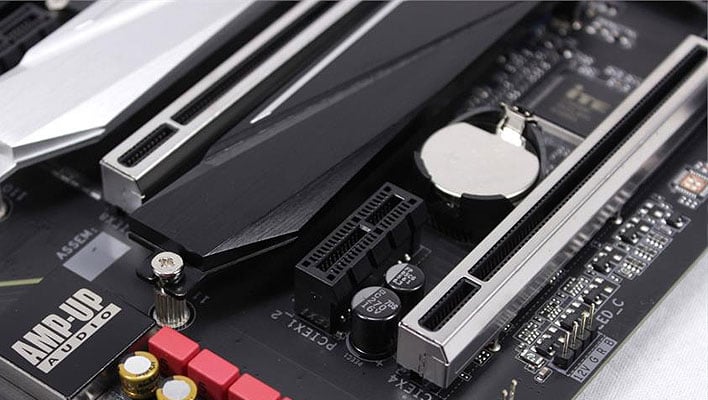PCI Express 7.0 Draft Teases A Massive Bandwidth Uplift On Tap For 2025

As of right now, the fastest PCI Express protocol available on consumer motherboards is PCI Express 5.0, which offers up to 128GB/s of bi-directional x16 bandwidth. While certainly fast, PCI Express 7.0 blows the bandwidth roof off the building with a huge 4X increase to 512GB/s, with PCI-SIG releasing a full draft of the upcoming spec, which it says remains on track for launch in 2025.
What about PCI Express 6.0? That spec was finalized way back in June 2022. Somewhat surprisingly, PCI-SIG has managed to stay at least a step ahead—it takes time for companies like AMD and Intel to bake the latest PCIe protocols into their platforms, and then there's the waiting period for actual hardware products (especially SSDs) to tap into the expanded bandwidth.
We could end up seeing PCIe 6.0 land on consumer boards later this year, though if not, we're probably looking at the first half of 2025. Compared to PCIe 6.0 with its 256GB/s of bi-directional bandwidth via x16, PCIe 7.0 is twice as fast—PCI-SIG has been able to double the maximum total bandwidth with each major iteration, with a three-year release cadence.
"PCIe 7.0 technology is aimed to be a scalable interconnect solution for data-intensive markets like 800G Ethernet, artificial intelligence/machine learning, hyperscale data centers, HPC, quantum computing, and the cloud. As PCIe technology continues to evolve to meet the high bandwidth demands of these applications, the PCIe 7.0 architecture will focus on channel parameters and reach while improving power efficiency," PCI-SIG says.
More recently (starting with PCIe 6.0), PCI-SIG has shifted to delivering the bulk of bandwidth gains through PAM4 signaling (Pulse Amplitude Modulation with four voltage levels). This multi-level signal modulation encodes more information at the same transfer rate (compared to NRZ). The PCIe 7.0 draft specification sticks to PAM4, but at a higher (double) clock rate.
One of the caveats is the same as it always with new PCIe specifications—while PCIe 7.0 is on track to be finalized in 2025, we probably won't see any consumer devices that make use of the spec until around 2027.


